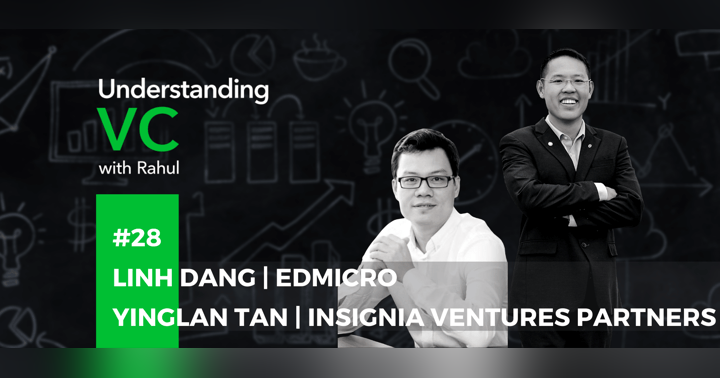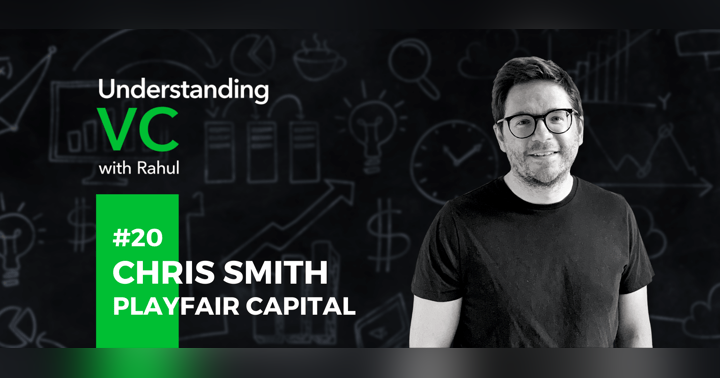Understanding VC: #1 Genesis of a Billion Dollar Company: Will Klippgen on How to Be a Successful Founder

Most of us have had ideas about building a business of our own which were never realized because of being plagued by ignorance and uncertainty. A startup idea is a seed that requires a conducive environment in order to germinate and grow into a successful company. And oftentimes, founders suffer gaps in knowledge which hold them back from tapping the full potential of their brainchild. Keeping this in mind, in our recent interview with Will Klippgen, managing partner at Cocoon Capital, we demystified some complex areas in venture capital and tried to understand the mechanics of a successful startup. We discussed the co-dependence of the founders’ attitude and their idea’s fruition, the kind of startup ideas which have potential to garner investors in 2021, some red-flags that founders should be wary of and lastly, the functioning of venture capital funds like Cocoon Capital.
Cocoon Capital is an early stage venture capital fund based in Singapore. Will started as a techie, worked with the search engine Excite, founded his own startup Kelkoo, and then became a business angel. As we spoke with him, he’s turned into a full-time, successful venture capitalist who is thorough with all the ins and outs of the industry. We were curious about Will’s diverse journey, so of course, we began from the very beginning.
“I loved to play with tech when I was a kid, I built a CD jukebox out of lego,” Will recalled his initiation into the world of technology. He started his journey with an effusive interest in robotics and cybernetics, but was soon drawn in by the world of the internet at a time when it was still an enigma. Soon after getting hired by Excite in ‘96, Will had an extremely memorable experience at the company. He clearly remembers the time when two of the Google founders came with a deal to sell Google to Excite and how turning that deal down was perhaps Excite’s biggest business mistake. This memorable event mirrors Klippgen's own subsequent professional experience.
“The most memorable and painful deal to pass on was a company called Transferwise,” Will told us. He went on to share with us the circumstances that led to this decision: the bitter reality for venture capital funds like Cocoon Capital is that every year, out of 2000-3000 business plans, they only have the capacity to fund 5-6, that too not without considerable risk. And in such a scenario, passing on a business plan which goes on to a billion-dollar company is certainly regrettable. “The future will show even more deals that we passed on that turn out to be amazing. Obviously, there are lots of great founders that we just don’t have the capacity to invest in,” Will emphasized that it is a conglomeration of several factors which decides the fate of an investment venture.
Needless to say, there are several things you should look out for before raising a VC round of funding, especially if you are a newbie and Will shared some vital insights on them. Statistics from 2020 illustrate that a whopping 90% startups are likely to fail. The risk entailed by huge investments in such a volatile market is extremely high. And that’s one of the reasons why it is difficult for founders to make their business plan stand out. Will shared with us a comprehensive checklist to make your business plan persuasive.
According to him, founders are the cornerstones for the success of any startup and it is essential that they share equal power and responsibilities. Investors look for startups where the founders work in harmony and there are least chances of ensuing conflicts. On being asked the single most important success factor that startups tend to overlook, Will emphasized flexibility as an essential quality investors look for in not only the founders but their business plans as well.
Being a founder is about taking feedback every single day….The teams that fail are generally failing because they are not receptive to feedback.
“It really comes down to the founders and their ability to adapt to the market they want to sell to and the products they want to sell. And they need to be super open to not necessarily following the initial plan, and be open to taking feedback and constructive criticism,” Will suggested a balance is necessary “You should be a little bit stubborn and believe in your idea but you shouldn’t be stubborn to such an extent where you do not adapt to reality.” Will also reminisced about a job interview for the post of a consultant, “I didn’t get the job, but the manager sat me down, and went through exactly why, and that was extremely nice.”
In addition to flexibility, and an experimental mindset, you need to really think of your startup as something you have to nurture with all that you have. We asked Will his perspective about the founders getting salaries which are lower than their ‘market value’. His response revealed the misfit nature of the term ‘market value’ in this context. “I don’t think it’s fair when you’re working in your own company and are the biggest shareholder, to drain the company for cash,” Klippgen goes on to explain “If you reduce the company’s profits by taking a high salary, you are hurting your own shareholding.” We understood that it is also a way of sharing some of the risk that the investors sustain, and showing faith in your own business plan.
After talking about the do’s and don’ts that Will recommends to startup founders, we probed a little further to understand what the founders should look out for. Are there any particular red flags? Here, a question arose: why, in the first place, are venture capitalists investing money in startups which have such a high chance of failure? “The fact of the matter is that investors are investing in startups to make money,” Will told us. And once this desire to make money goes overboard, some investors start to exploit the business plan for solely their own benefit. Here, Will highlighted two red flags which founders should be wary of.
The first one is double dipping where the shareholder agreement is explicitly disadvantageous to the founders and the employees, allowing the investors to hog over most of the money that comes from the liquidation of a company. “Sometimes you have to do these things when you’re desperate,” Klippgen added while maintaining that it is not something you should readily put up with.” The second red flag that Will mentioned is the investors’ demand for payment in exchange for being members of the board.
“We, at Cocoon Capital, actually do real work with them. We work quite a bit on governance. We help them with getting their first contract. The only thing we insist on is that we have monthly board meetings until the company turns profitable,” Will explained how they cultivate the startup-investor relationship. He made it pretty evident that flexibility is an attribute which should be possessed by both sides, and the investors should be expected to add value through means apart from monetary input.
Towards the end, we asked Will about what Cocoon Capital and VCs in general look for in a startup idea, “Typically a company that’s selling to businesses and using technology in some form….Basically solving a real problem which is expected to increase over time: a long term meaningful problem that the customers will pay to solve.” So, the next time you bring your startup idea to a business angel or VC, remember to have a significant problem at your hands, and the solutions that you propose to solve them.



